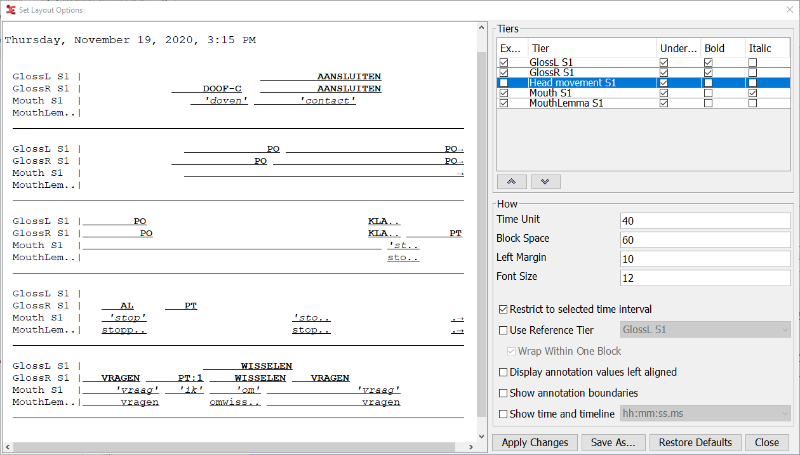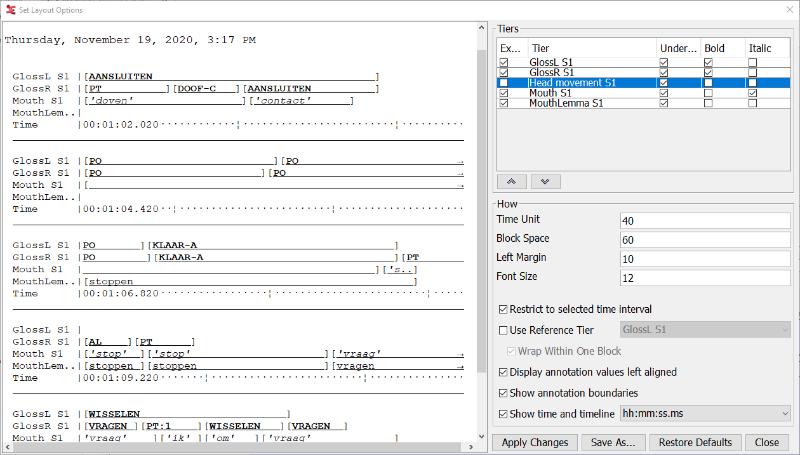Time-aligned Interlinear Text
This export function () produces interlinear output but, unlike standard Interlinear Gloss, the formatting is based on time alignment . This is achieved by using a monospaced (fixed width) font in combination with a customizable character-to-milliseconds calculation factor. As a consequence, depending on this factor, the export might cut off part of the annotation value.
The export offers a few text styling options (underline, bold, italic) and the output format is (simple) HTML.
Figure 46. Export settings
 |
The ouput can be customized in various ways:
In the top right area of the window is the usual Tiers selection panel. But with additional columns that allow to specify a style per tier. The font style options are underline, bold and italic.
The remainder of the right area of the window, the "How" panel, contains options to further customize the output:
the value entered here determines the number of milliseconds one character represents.
this is the width of the text block in number of characters. This does not include the margin.
the number of characters for the tier labels.
the font size to use for the output.
this allows to export only the selected fragment instead of the entire transcript.
when a reference tier is selected, the annotations of this tier are exported, together with overlapping annotations on other selected tiers.
when a reference tier is used, this option determines whether or not line wrapping is performed within a block. Without wrapping the block width may exceed the specified block space.
by default annotations are exported right aligned, with this option the output is left aligned.
with this option the begin and end boundary of annotations are marked with "[" and "]" characters.
with this option a kind of timeline, in text, is added to the output.
The left half of the screen shows a preview of the output based on the current settings.
After changes in settings the button updates the preview. The button starts the actual export, currently html is the only supported format.
Figure 47. Different export settings
 |